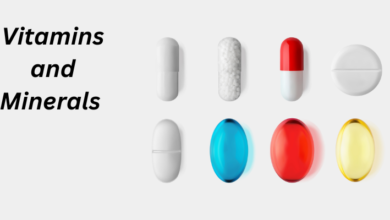Boosting Your Immune System for Better Health
The immune system is a complex network of cells, tissues, and organs that work together to protect the body from harmful pathogens such as bacteria, viruses, and toxins. The immune system also plays a critical role in preventing the growth and spread of cancer cells.
Factors affecting the immune system
Several factors can affect the immune system’s function, including diet, sleep, stress, exercise, and environmental factors.
Diet and nutrition
Eating a healthy and balanced diet is vital for maintaining a strong immune system. Nutrients like vitamins A, C, and E, as well as zinc and selenium, are essential for immune function. Consuming a diet rich in fruits, vegetables, lean protein, and whole grains can help boost the immune system.
On the other hand, a diet high in processed foods, saturated fats, and added sugars can weaken the immune system and make it more susceptible to infections and diseases.
Sleep and stress
Sleeping enough is essential for keeping your immune system strong. The body creates cytokines, which are proteins that aid in warding off illnesses and inflammation, while at rest. Chronic sleep loss can weaken the immune system, which makes it more challenging to fend against infections and illnesses.
The immune system might suffer from the detrimental effects of stress. Increased inflammation brought on by high amounts of stress can compromise the immune system. Finding techniques to control stress, such as meditation, physical activity, or talking to a therapist, is crucial.
Exercise
Regular exercise has numerous benefits for overall health, including strengthening the immune system. Exercise helps boost the immune system by increasing the production of antibodies and white blood cells, which help fight off infections and diseases.
There are several types of exercise, including aerobic, strength training, and flexibility exercises, all of which can benefit the immune system.
Environmental factors
Environmental factors such as pollution, exposure to toxins, and poor air and water quality can weaken the immune system. It is essential to reduce exposure to toxins and pollutants by using natural cleaning products, avoiding tobacco smoke, and reducing exposure to air pollution. Drinking clean and filtered water can also benefit the immune system.
Ways to boost your immune system
Several lifestyle changes and healthy habits can help boost the immune system,
Foods to eat
Incorporating immune-boosting foods into your diet can help strengthen your immune system. Foods that are rich in vitamin C, such as citrus fruits, strawberries, and bell peppers, can help increase the production of white blood cells, which are essential for fighting infections.
Other insusceptible helping food varieties incorporate garlic, ginger, turmerics, and mixed greens like spinach and kale. These foods are rich in antioxidants, which help protect the body from damage caused by free radicals.
Foods to avoid
Processed foods, sugary drinks, and alcohol can weaken the immune system and make it more difficult to fight off infections. It is important to limit the consumption of these foods and instead focus on eating a balanced diet that is rich in whole foods.
Sleep and stress
Getting 7-8 hours of sleep each night can help strengthen the immune system. Establishing a regular sleep routine, avoiding caffeine and alcohol before bedtime, and creating a relaxing sleep environment can all contribute to better sleep.
In addition, finding ways to manage stress can also benefit the immune system. Meditation, yoga, and deep breathing exercises are all effective ways to reduce stress and promote relaxation.
Exercise
Customary activity is fundamental for keeping serious areas of strength for a framework. Go for the gold 30 minutes of moderate-power workout, like energetic strolling or cycling, every day. Strength training exercises like lifting weights can also help increase the production of white blood cells.
Environmental factors
Reducing exposure to toxins and pollutants is important for maintaining a healthy immune system. Use natural cleaning products, avoid tobacco smoke, and reduce exposure to air pollution by using air purifiers and avoiding high-traffic areas.
Drinking clean and filtered water can also benefit the immune system by reducing exposure to harmful contaminants.
Conclusion
Maintaining a strong immune system is essential for overall health and well-being. By making certain lifestyle changes and adopting healthy habits, you can help strengthen your immune system and reduce the risk of infections and diseases.
FAQs
- Can supplements boost my immune system? Supplements can be helpful in boosting the immune system, but it is important to talk to a healthcare professional before taking any supplements.
- Is it necessary to get vaccinated for a strong immune system? Getting vaccinated is one of the most effective ways to strengthen the immune system and protect against infections and diseases.
- Can too much exercise harm my immune system? While exercise is beneficial for the immune system, too much exercise can actually harm the immune system. It is important to exercise in moderation and listen to your body.
- What environmental factors should I be aware of to boost my immune system? To boost your immune system, it is important to reduce exposure to toxins and pollutants, drink clean water, and avoid high-traffic areas with high levels of air pollution.
- What amount of time does it require to help your safe framework? It can take several weeks or even months to strengthen the immune system, depending on the individual’s health status and lifestyle habits. Consistency is key in maintaining a strong immune system.




